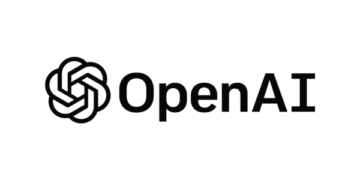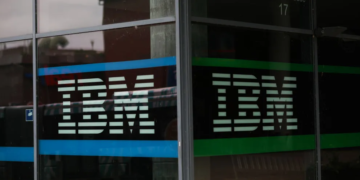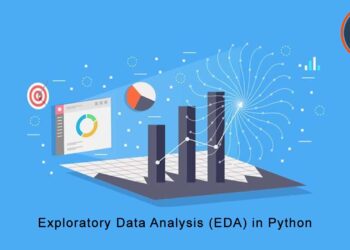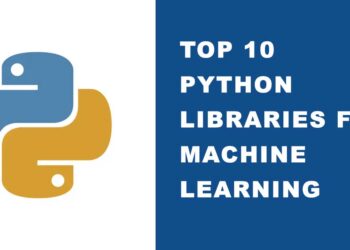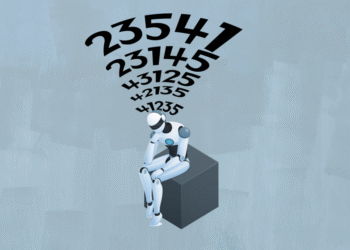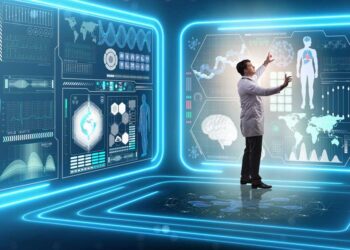There is no doubt that AI has transformed almost all industries, which impacted job markets as well. However, as this technology grows, we can come to one conclusion – AI will not be able to replace many positions due to its lack of creativity and strategic thinking. So, what’s the impact of artificial intelligence on job markets? Twofold is the shortest answer. Let’s dig deeper.
Streamlining repetitive tasks through AI-powered automation
One of the primary ways AI influences job markets is by streamlining and automating repetitive tasks. AI technologies, such as machine learning algorithms and robotic process automation (RPA), excel at performing routine, rule-based activities with much higher speed and precision compared to human employees. This capability has led to the automation of various jobs across industries, ranging from manufacturing and logistics to customer service and data entry.
Here’s a simple example: If you had an assistant in your company whose sole purpose was to enter data to Excel sheets and send mass emails to your company’s customers, both activities can be relatively easy replaced with AI. However, whether firing such an assistant would be a good move is an entirely different question, that we will discuss further in a moment
If your company has many inquiries from your customers and the majority of them are rather straightforward, then again, you can relatively easily automate this task by implementing a chatbot or a virtual assistant. This way, your customer service consultants can focus on more strategic and sensitive aspects of their jobs – e.g., handling complaints or dealing with lost orders.
And maybe one more example: Manufacturing plants and factories. Yes, in such a setup, AI-powered robots can efficiently assemble products on assembly lines, reducing the need for manual labor. Robots and automated assembling devices are faster, make fewer mistakes, and are never tired. In this scenario, they have a clear advantage over human workers.
So yes, on the one hand, we need to conclude that AI has taken away some jobs from the job market, mostly as a result of AI-fueled automation. Workers engaged in tasks that are easily replicable by AI may find themselves displaced or required to acquire new skills to remain relevant in the workforce.
However, there is also the different side to this story. In a recent study conducted by Asana, surveyed employees said that 29% of their work tasks are replaceable by AI. What about the remaining 71%[1]? This is where human creativity, strategic thinking, and real-life experience step in the game. Let’s talk a bit more about that.
The value of human creativity and strategic thinking
While AI comes very handy concerning executing predefined tasks with efficiency, it lacks the nuanced capabilities of human cognition, particularly in areas of creativity, intuition, and strategic decision-making. These things are the result of not just the complexity of the human brain but also our real-life experiences. Despite rapid advancements in AI-related technologies, machines and algorithms still struggle to replicate the full scope of human intelligence, especially when it comes to aspects that require empathy, emotional intelligence, and complex problem-solving abilities.
Let’s go back to our example with an executive assistant. While it’s true that if their only job was to put data into Excel, they can easily be replaced with AI, usually such assistants do far more than that, and they are useful in a whole range of things, from discussing growth ideas to communicating with other team members. AI cannot do those things, because AI has no real-life experience, no creativity, no problem-solving abilities. In fact, AI can only replicate things that are already known to it and perform tasks that it was trained to perform.
And this question goes further because, in professions like law and medicine, where critical thinking and judgment are crucial, AI can only serve as a valuable tool that can augment human expertise but not replace it altogether, at least not at this stage of development. Let’s consider AI-powered medical diagnostic systems as an example. It’s true that they can assist doctors in analyzing medical images and identifying potential abnormalities in patients. In fact, we already have tools that are more effective at spotting cancer cells than human doctors. But the final diagnosis and treatment decisions still rely on the doctor’s expertise and clinical judgment.
So, while AI can support human workers and employees, it cannot fully replicate human intellect, experience, and intuition. And these traits are immensely important in the vast majority of jobs and sectors. So, rather than viewing AI as a threat to employment, it should rather be seen as a vital support that aids human workers in doing their work in a better, faster way.
Also Read: Artificial Intelligence for Disaster Response: Predicting the Unpredictable
Do you use artificial intelligence in your company?
If you’re not yet using any form of AI in your business, perhaps it’s a good moment to start. However, it you’re worried how your employees may receive this news, start by ensuring them it’s not to fire them or cut their salaries. This is very important as your team must feel comfortable with AI and you need to have them on board if you want this project to succeed.
Depending on what you do in your company, AI can streamline repetitive tasks, answer repetitive questions, and provide suggestions and information based on available data. Do some research and see how AI can be used in your sector, and then pick one tool that would make the biggest difference in your company.
If that’s your first time with AI, we recommend starting with an AI consulting company. Such a company will help you pick the best solutions that are tailored to your business and then – implement them and train your team on how to use them effectively. It’s a much faster and more effective way compared to trial-and-error approach that can take you a lot of time (and money). Integrating artificial intelligence into your company can revolutionize operations, enhance productivity, and foster innovation.
See Addepto.com for details.
[1] https://www.cnbc.com/2023/12/16/ai-job-losses-are-rising-but-the-numbers-dont-tell-the-full-story.html




